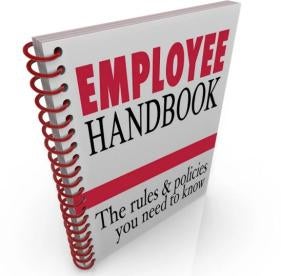The start of the year is prime time for employers to review employee handbooks. Many policies remain the same year after year. Employers may wish to pay attention to certain policies due to recent changes in the law.
1. Defense of Trade Secrets Act (DTSA) notice. If your company has a confidential-information policy or requires employees to sign non-disclosure agreements, then you should consider including notice of the DTSA’s immunity exceptions. Such notice permits the company to seek all available remedies under the DTSA should a given employee breach their obligations to keep certain information confidential.
2. Protected classes. Employers should review the list of protected classes in their policies prohibiting discrimination, harassment, and retaliation in order to ensure compliance with federal, state, and local laws. For example, the Equal Employment Opportunity Commission (EEOC) views sexual orientation and gender identity discrimination as a form of sex discrimination—and some cities and states prohibit such conduct.
3. Nursing mother policy. The Patient Protection and Affordable Care Act (ACA) requires employers subject to the Fair Labor Standards Act (FLSA), (unless they have fewer than 50 employees and can demonstrate that compliance would impose an undue hardship), to provide unpaid, reasonable break time for an employee to express breast milk for one year after her child’s birth. Several states and some municipalities have similar requirements.
4. Drug and alcohol-free workplace policy. With an increasing number of states enacting both medical and recreational marijuana use laws, employers should consider revising policies to clearly tell employees the employer’s stance on drug testing and how the use of marijuana (even when outside of the workplace) may impact the results of such tests and employment opportunities.
In addition to the above considerations, the National Labor Relations Board (NLRB) has focused its attention on numerous handbook policies in its quest to protect employees’ rights to engage in protected, concerted activity. Employers should ensure their policies concerning confidential investigations, workplace recordings, positive employee attitudes, social media and communications, solicitation, and dress code comply with current NLRB decisions.



 i
i

